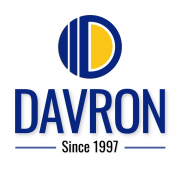Answering the “Tell me about yourself” question in an interview can be difficult for many people. This question is often asked first and can set the mood for the entire interview. Not being prepared for this question can leave a negative impression on potential employers and greatly reduce your chances of making a good impression or getting a job.
This article provides tips and strategies for effectively answering the “Introduction” question so that you will be seen as a confident, knowledgeable, and enthusiastic job seeker at your next job interview.
prepare to answer questions
What a naive question… No! It’s a trap, a trap most people fall into. This common opening phrase in interviews is not an invitation to recite your resume. Also, don’t spend two minutes talking to her about your favorite hobbies. This is a predictable opportunity to create a compelling and interesting executive summary of who you are and why you are attending the interview. There’s no hard and fast rule on how long it should be, but let’s say 1 minute max.
Interviewers are known to make decisions in the first few minutes of an interview. Start with something strong and relevant. Momentum is key to building and maintaining confidence. When you are presented with this opportunity, use it to your advantage and build momentum at the beginning of the interview.
As you prepare to answer this question, it’s important to think about what the interviewer wants to know or want. Employers often want information about your experience and qualifications that might make you a good fit for the job. Be clear about your experience and achievements before the interview, talk about them clearly and concisely, and be ready to prove your talents and skills. Additionally, be sure to use language that indicates you are a professional and confident candidate.
It is also important to practice your answers to the questions before the interview. That way, you can feel confident and comfortable when answering questions. Plus, practice will help you refine your answers and make sure you convey the most important information in the most effective way. Finally, try to be honest and authoritative in your answers. Interviewers can tell if you’re not being honest, which can hurt your chances of getting a job.
Understand what the interviewer wants to know
When answering this question, it’s important to understand what the interviewer wants to know. Most employers want you to be able to present yourself as a qualified candidate who brings value to their organization. They may want to know about your skills, experience, and achievements. Additionally, they may be interested in what you know about the company and why you think you’re a good fit for the role.
Be relevant to the job you are interviewing for. The stronger the connection about your background, knowledge, and interests to the job you are interviewing for, the more attractive you will be as a candidate.
When preparing for an interview, it’s important to research the company you’re applying to and their role. This will help you understand the company’s mission and values, as well as the skills and qualifications required for the role. Additionally, it’s important to practice your answers to common interview questions. Doing so will help you feel more prepared and confident when answering the interviewer’s questions.
It’s also important to be honest and sincere when answering the interviewer’s questions. Employers are looking for candidates with integrity and passion for the role. Be sure to highlight your strengths and experience that make you best suited for the role. Additionally, be sure to ask questions about the role and company to show your interest and enthusiasm.
Highlight your strengths and achievements
Use this question as an opportunity to highlight your greatest strengths, qualifications, and achievements. Mentioning a recent success story or project you’ve worked on can help you demonstrate your skills and experience in a concrete way employers will remember you. Always be candid when referring to your accomplishments so that you can show a clear correlation between your work experience and the job you are applying for.
It’s important to be honest and precise when highlighting your strengths and achievements. Do not exaggerate or embellish your experience as it can lead to potential problems in the future. Instead, focus on the skills and experience most relevant to the job you’re applying for. This will help you stand out from other applicants and show employers that you are the right person for the job.
It’s also important to be concise when talking about your accomplishments. Employers don’t have much time to read lengthy stories. So try to get the gist right away. Highlight the most important details and provide evidence to support your claims. This will help make a strong impression on you and show employers that you are the best candidate for the job.
Structuring the response
A well-structured response to “Tell me about yourself” can make you appear organized, thoughtful, and articulate. Consider using a simple structure, such as discussing your career in chronological order, starting with your most recent job title. This will help you create a compelling narrative that shows the logical progression of your career path, and it will also help you demonstrate relevant knowledge and experience in related fields.
When assembling your response, it’s important to focus on the most relevant information. Highlight key skills, qualifications or experience relevant to the role you are applying for. This will help you prove why you are the best candidate for the job. Additionally, it is important to be concise and to the point. Don’t go into too much detail as this may make the interviewer uncomfortable.
You want to make a short statement that will give you an idea of where your career has been and where you want to go. Think 20,000 feet, not ground level.
Finally, it’s important to practice your responses before the interview. That way, you can feel confident and comfortable when answering questions. You can practice with friends and family, or even in front of a mirror. This helps improve responses and ensures that the correct message is conveyed.
create a compelling story
When crafting your response, try to tell a compelling story by highlighting how your experience has helped you throughout your career. Consider how you were able to apply lessons learned from past roles and how it has positively impacted your professional life. This helps employers understand your mindset and gain insight into your personality. It also helps show how you stand to be successful in that role.
As you tell your story, be sure to focus on the positive aspects of your experience. Talk about a challenge you faced, how you overcame it, and the successes you achieved. This will help show employers that you are a resilient and capable person who can handle difficult situations. Plus, it helps you prove your problem-solving skills and ability to think on your feet.
When writing your story, be concise and to the point. Employers don’t want to hear long stories that don’t get the point across. Instead, focus on the key points you want to convey and make sure they are clear and concise. This will help make sure your story is compelling and resonates with employers.
Avoid Common Pitfalls When Answering “Tell Me About Yourself”
When answering this question, avoid common pitfalls such as talking too much about yourself personally, talking negatively about past employers and co-workers, and talking about irrelevant details. . Instead, focus on providing clear and relevant information that highlights your qualifications. Additionally, keep a positive and optimistic attitude throughout your response as it will help build trust with the interviewer.
If there is anything notable about your personal life that might help spur your candidacy or explain your career trajectory, please add it. Otherwise, omit personal information at this stage.
Leverage Examples to Prove Your Credentials
Please support your claim by providing relevant examples that prove your qualifications. If possible, provide evidence such as figures and facts to support your statement. Additionally, tailor these examples to the position or field you’re applying for so employers can recognize how your skills will benefit their organization. Showing concrete evidence of what you can offer will help employers recognize your value as a candidate.
practice answering before the interview
Practice your responses beforehand to make sure you’ve covered all the key points of your responses and to appear knowledgeable and confident. Rehearsing your story and key points out loud will give you the confidence you need to effectively answer this question in an interview. It’s also important to note that this is not a one-time exercise for him. Practice whenever you are preparing for an interview, as new experiences and examples may come up.
Summarize your answers
Be sure to end your response in a positive and memorable way. Summarize the main points of your talk and highlight why you would be a great addition to their organization. Additionally, demonstrate your enthusiasm for the position and show the interviewer that you are genuinely interested in working together.
Tips for Answering “Tell Me About Yourself” in an Interview
Please prepare in advance. Consider what information your employer would like to know about you.
Understand what the interviewer is looking for in your answers. Highlight relevant experience and skills.
Structure your response in a compelling way. Chronological order is often useful for creating a codified story about your professional journey.
Use examples and stories. Support all claims with facts or evidence.
Practice before your interview. Rehearsing aloud can help give you the confidence you need to succeed in an interview.
End your response in a positive and memorable way. Express your enthusiasm and interest in being part of your organization.
There are many things to consider when answering this question in an interview. With proper preparation and practice, and following the tips here, you can be sure to make a good impression with your “Introduce yourself” questions.






